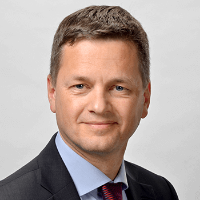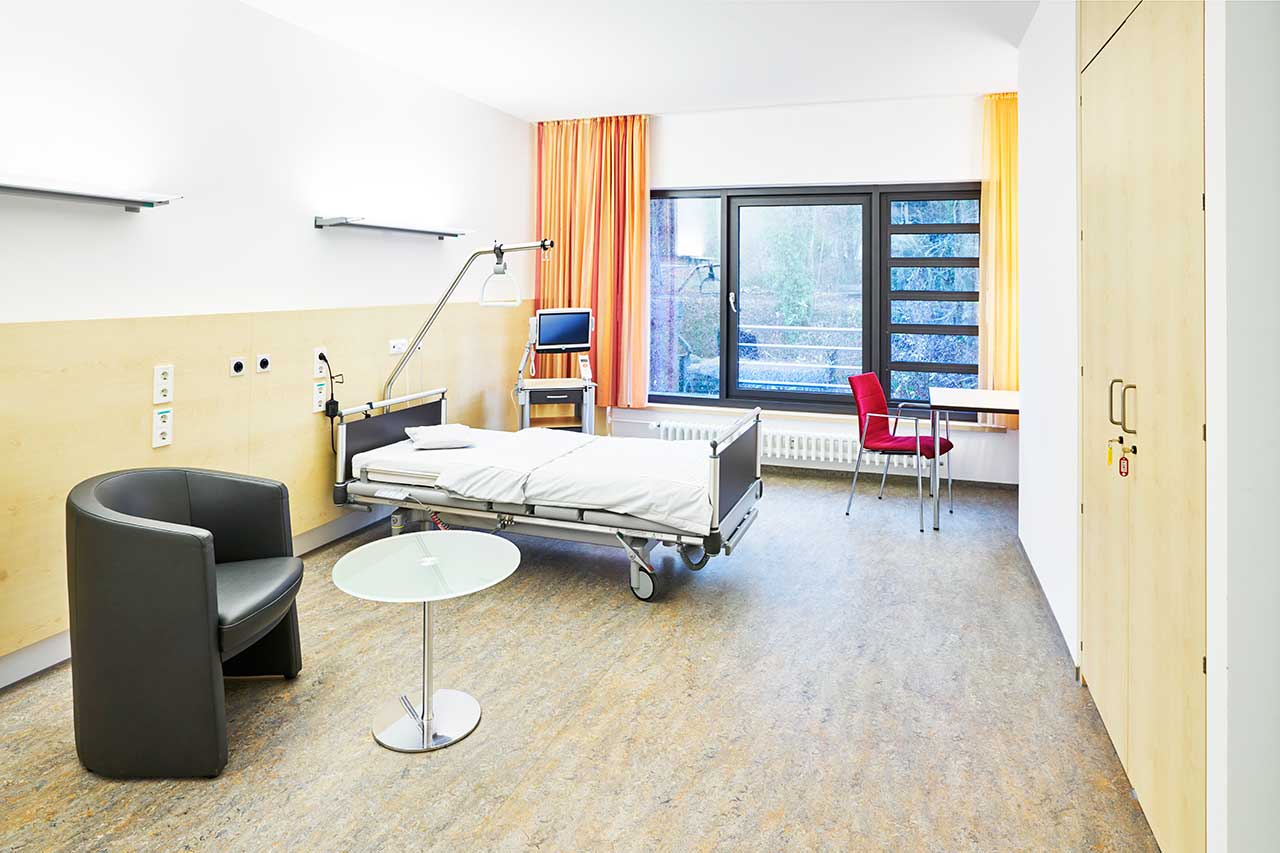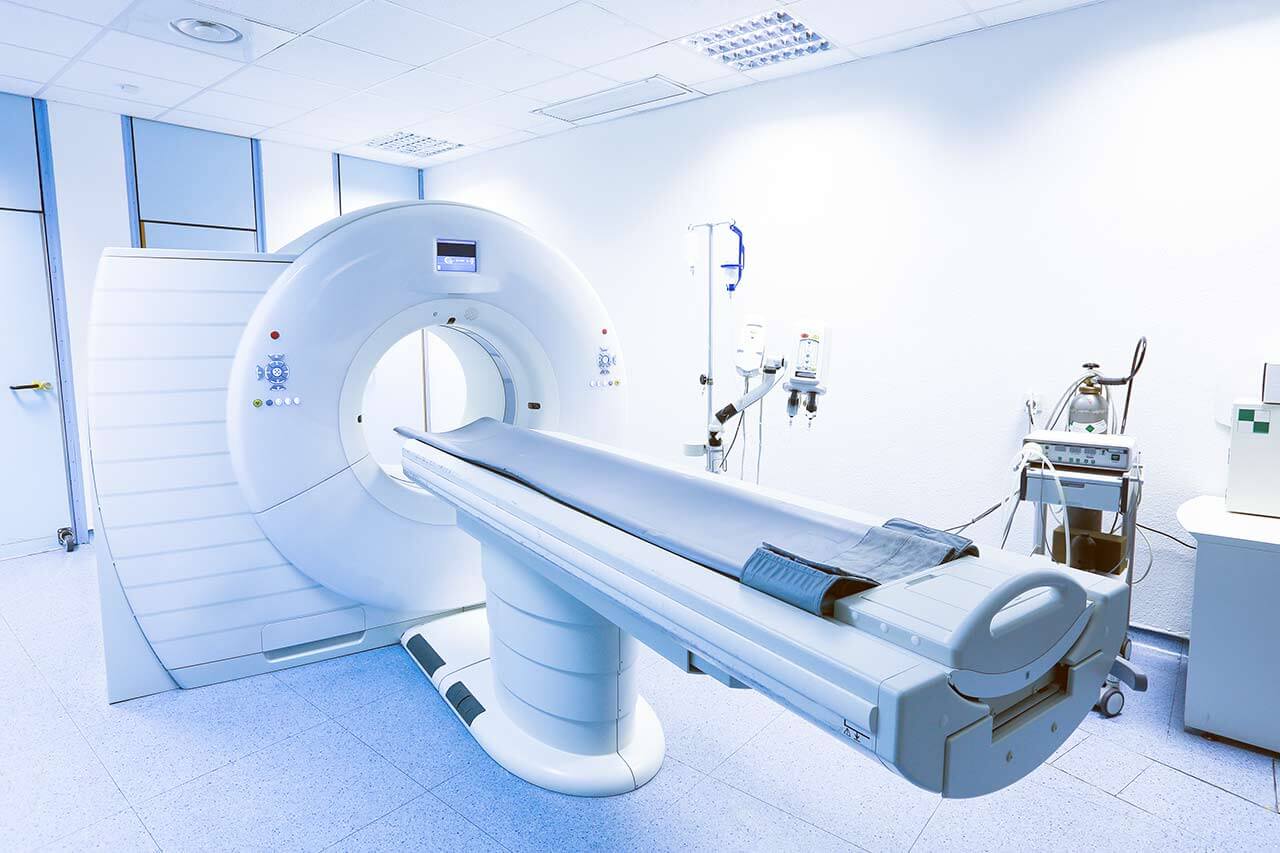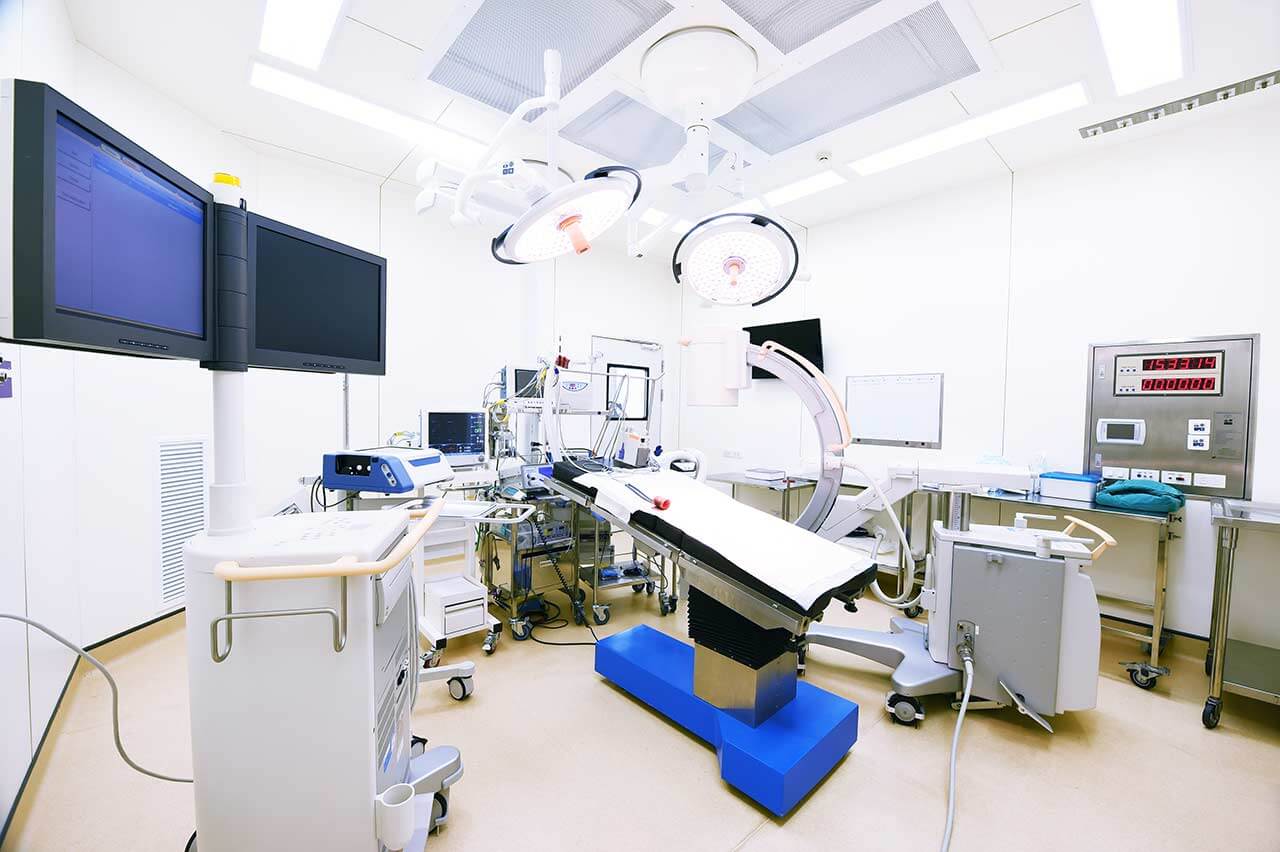
The program includes:
- Initial presentation in the clinic
- clinical history taking
- review of medical records
- physical examination
- laboratory tests:
- complete blood count
- biochemical analysis of blood
- mineral metabolism analysis (Na, K, Ca, Mg)
- lipid metabolism (HDL/LDL, cholesterol,
triglycerides Lip(a), homocysteine) - inflammation indicators (CRP, ESR)
- indicators blood coagulation
- blood gas analysis
- chest x-ray examination
- holter monitoring (24h)
- measurement of arterial blood pressure
- electrocardiogram (ECG)
- pulmonary function test
- echocardiography
- doppler echocardiography
- high-resolution computed tomography (HR-CT)/MRI (on indication 950/1200€)
- CT angiography (on indication 1350€)
- nursing services
- consultation of related specialists
- treatment by chief physician and all leading experts
- explanation of individual treatment plan
(the cost of medicines is not included)
Required documents
- Medical records
- ECG (if available)
- Echocardiography (if available)
- Coronary angiography (if available)
Service
You may also book:
 BookingHealth Price from:
BookingHealth Price from:
About the department
According to the Focus magazine, the Department of Cardiology and Angiology at the University Hospital Erlangen ranks among the top German medical facilities specializing in the treatment of cardiovascular diseases!
The department offers the full range of modern diagnostic and therapeutic services to patients suffering from heart disease, as well as lesions of the peripheral arteries and veins. The department's doctors have at their disposal excellent technical resources and many innovative techniques for the treatment of arrhythmias, heart failure and catheter-based treatment of coronary stenosis, heart valve defects, congenital heart defects in adults and other heart pathologies. The department's specialists can also boast of their exceptional experience in cardiac imaging tests. The department's unique offer is sports cardiology. The experts in this medical field carry out a set of tests to determine the maximum possible physical activity in patients with cardiovascular diseases. In addition, doctors specializing in sports cardiology carry out preventive examinations in healthy people. In this case, the purpose of the examination is to assess the risks of developing cardiovascular pathology with a particular physical activity.
The department is headed by Prof. Dr. med. Stephan Achenbach. The specialist enjoys an excellent reputation not only in Germany, but also in the European medical arena. With over 25 years of clinical experience in the treatment of heart disease, Dr. Stephan Achenbach provides effective medical care for patients with pathologies of any severity and holds valuable consultations on maintaining normal heart function. A large team of highly qualified cardiologists and angiologists works hand in hand under his leadership. Their task is to provide each patient with top-class comprehensive medical care.
An important part of the department's successful clinical practice is accurate diagnostics with the use of echocardiography, MRI, cardiac CT, etc. Particular attention is paid to the interventional procedures for complex forms of vascular stenosis and occlusion, for acute myocardial infarction, as well as to catheter-based procedures for the treatment of heart valve defects and hypertrophic cardiomyopathy. Heart rhythm disturbances are diagnosed by specially trained experts specializing in electrophysiology.
One of the key focuses of the department's clinical practice is the implantation of pacemakers and defibrillators for the correction of heart rhythm disturbances (arrhythmias). As a rule, the implantation of pacemakers and defibrillators is indicated for patients with a low heart rate and heart rhythm disturbances accompanied by dizziness, presyncope or syncope, as well as for patients suffering from heart failure. These devices are designed for eliminating life-threatening conditions and preventing cardiac arrest. The implantation of pacemakers and defibrillators takes place after an accurate diagnostic examination, under local anesthesia. The device is programmed two days after surgery. The patient then remains under the supervision of doctors, who assess his vital signs in dynamics. Whenever required, the department's specialists carry out replacement or correction of the device settings.
In addition to the implantation of artificial pacing devices, the department's cardiologists specialize in the treatment of congenital heart defects in adults. Congenital heart defects can lead to the development of chronic heart failure, significantly reduce the quality of life or threaten the patient's life. When doctors admit to the department the patient with a suspected heart defect, they study his medical history and prescribe stress tests (physical exercise or pharmacological stress) and resting tests. These include electrocardiography, echocardiography, x-ray, cardiac CT or MRI, laboratory tests, etc. Once the diagnosis is made, physicians prescribe the required treatment, the purpose of which is to alleviate symptoms and correct pathological changes in the heart. The earlier the patient seeks medical help, the higher the likelihood of successful therapeutic treatment, without interventional procedures or surgery, and the lower the risk of developing serious complications. The very first recommendation in case of the detected heart disease and heart failure is to limit physical activity. During the treatment process, the department's cardiologists use various medications, including anticoagulants, antihypertensive drugs, beta-blockers and others. Nevertheless, conservative treatment methods do not always allow achieving the desired result, and therefore catheter-based cardiac interventions are often indicated to patients, and in complex clinical cases – a full-fledged surgery. The heart defects in adults are treated with the use of catheter-based techniques in a state-of-the-art cardiac catheterization laboratory. After the completion of catheter treatment, the patient receives recommendations on diet and lifestyle modifications to consolidate the results of therapy.
Heart failure is also a priority focus of the department's cardiology team. The development of heart failure is quite often caused by cardiomyopathy, myocardial infarction, or flu-like infection. First of all, the patient is prescribed to take such medicines as angiotensin-converting enzyme (ACE) inhibitors, beta-blockers, diuretics. Medications help to make the heart work easier. The patients suffering from heart failure quite often need pacemaker implantation for maintaining heart function. The department's specialists successfully perform isolated pacing of the right and left ventricles of the heart (cardiac resynchronization with biventricular pacing) for some patients.
The department's service range is complemented by the diagnostics and treatment of vascular diseases. The treatment of diseases of the peripheral arteries and veins is of particular interest in this medical field. Ultrasound, CT and MRI imaging, angiography, and other tests are commonly used to detect changes in the vascular system. During angiography, the department's doctors often simultaneously perform therapeutic endovascular procedures: stent implantation, balloon dilation, and others. The department most often admits patients with peripheral arterial occlusive disease, lymphedema, lymphatic edema, varicose veins, thrombosis, venous insufficiency, embolism, arterial atherosclerosis, various inflammatory diseases and vascular ruptures. The treatment regimen is developed for each patient individually, based on the results of the preliminary diagnostic examination, taking into account the general condition of the patient, age and other indicators.
The department's main clinical focuses include:
- Cardiology
- Diagnostics and treatment of congenital heart defects in adults
- Diagnostics and treatment of heart failure
- Drug therapy (intake of angiotensin-converting enzyme (ACE) inhibitors, beta-blockers, diuretics and other medicines)
- Pacemaker implantation
- Isolated pacing of the right and left ventricles of the heart (cardiac resynchronization with biventricular pacing)
- Diagnostics and treatment of heart rhythm disturbances
- Drug therapy
- Ablation
- Implantation of pacemakers and defibrillators (in cooperation with cardiac surgeons)
- Cardiac resynchronization therapy for heart failure
- Catheter interventional procedures for the treatment of cardiac pathologies
- Interventional procedures to close atrial septal defects (open foramen ovale, atrial septal defect)
- Interventional occlusion of the atrial appendage
- Catheter treatment of heart valve defects (for example, transcatheter aortic valve implantation)
- Sports cardiology (basic and extended check-ups to determine the maximum possible physical activity in patients with cardiovascular diseases and preventive check-ups in healthy people in order to assess the risks of developing cardiovascular pathology during exercise)
- Angiology
- Diagnostics and treatment of diseases of peripheral arteries and veins (drug therapy and endovascular treatment)
- Peripheral arterial occlusive disease
- Lymphedema
- Lymphatic edema
- Varicose veins
- Thrombosis
- Venous insufficiency
- Embolism
- Atherosclerosis
- Inflammatory vascular diseases
- Diagnostics and treatment of diseases of peripheral arteries and veins (drug therapy and endovascular treatment)
- Other medical services
Curriculum vitae
Higher Education and Professional Career
- 1987 - 1993 Study of Medicine at the Faculty of Medicine of the University of Erlangen.
- 1993 - 2011 Work in the Department of Cardiology, University Hospital Erlangen.
- 2002 - 2003 Work in Massachusetts General Hospital, Boston, Massachusetts, USA.
- 2011 - 2012 Work in the Department of Cardiology, University Hospital Giessen.
- Since 2012 Professor and Head of the Department of Cardiology and Angiology at the University Hospital Erlangen.
Main Clinical Focuses
- Interventional cardiology.
- Cardiac CT and MRI (imaging heart diagnostics).
- General cardiology.
- Intensive care in acute cardiac conditions.
Main Research Focuses
- Imaging of the cardiovascular system (CT, MRI).
- Interventional cardiology (coronary imaging, fractional flow reserve measurement, TAVI, etc.).
Memberships in International Professional Societies
- 2005 - 2007 President of the Society of Cardiovascular Computed Tomography.
- 2005 - 2016 Member of the Board of Directors of the Society of Cardiovascular Computed Tomography.
- 2002 - 2006 Member of the Board of Directors of the Society of Atherosclerosis Imaging and Prevention.
- 2010 - 2014 Member of the Cardiac Imaging Committee, American Heart Association.
- Member of the European Society of Cardiology.
Prizes, Awards and Honors
- 1999 Jan Brod Prize for Clinical Research, Faculty of Medicine, Hannover Medical School, Germany.
- 2007 Thomas C. Cesario Distinguished Visiting Professorship Award, University of California, Irvine School of Medicine.
- 2009 Simon Dack Prize, American College of Cardiology.
- 2015 Gold Medal of the Society for Cardiovascular Computed Tomography.
- 2016 Sir Godfrey Hounsfield Memorial Award of the British Institute of Radiology.
- 2013, 2014, 2015, 2016, 2017 Best Teaching Award in Clinical Medicine, University of Erlangen-Nuremberg.
Photo of the doctor: (c) Universitätsklinikum Erlangen
About hospital
According to the Focus magazine, University Hospital Erlangen ranks among the best medical facilities in Germany!
The hospital is one of the leading healthcare facilities in Bavaria and offers top-class medical care distinguished by the close intertwining of clinical activities with research and training of medical students. The hospital was founded in 1815 and today is proud of its rich traditions, numerous medical achievements and an excellent reputation not only in Germany, but also in the international arena. The hospital has 25 specialized departments, 7 institutes and 41 interdisciplinary centers, whose experts work tirelessly for the benefit of their patients.
The hospital has the status of a maximum care center, and therefore it represents almost all fields of modern medicine. Oncology, transplant medicine, and robot-assisted surgery are among the top priorities of the clinical activities of the medical complex. Oncology is represented by the Comprehensive Cancer Center Erlangen, which is one of 13 centers of excellence in Germany certified by the German Cancer Society. The university hospital has a high-tech center with high success rates for heart, liver, kidney, pancreas, cornea and bone marrow transplants. In addition, the hospital is a leader in the use of robot-assisted surgery. The medical facility has at its disposal innovative robotic technologies, in particular the da Vinci Surgical System, with the help of which surgeons perform many sparing interventions in various medical fields.
The medical team of the hospital consists of highly professional therapists, surgeons and nursing staff. The focus of their efforts is on the patient, his health and peace of mind, as well as comfort during treatment. The clinical practice of doctors is based on an individual approach to each case, which results in high treatment success rates. State-of-the-art technical equipment also plays an important role in the therapeutic process. The hospital is proud of the most advanced devices for imaging diagnostics (X-ray, ultrasound, CT, MRI, PET-CT, SPECT-CT, etc.), endoscopic examinations, laboratory tests, as well as specially equipped operating rooms for robot-assisted interventions, image-guided therapeutic manipulations, minimally invasive and classical surgeries of any complexity. Thus, the doctors of the university hospital have all the necessary resources to effectively treat the most severe pathologies and save lives.
The combination of high-tech equipment, experienced and highly qualified personnel, as well as strict adherence to the standards of modern medicine, form a solid foundation for the provision of the best medical care at the European level. An undeniable proof of the high prestige of the hospital is the constantly growing number of patients who come here from various regions of Germany and other countries of the world.
Photo: (с) depositphotos
Accommodation in hospital
Patients rooms
The patients of the University Hospital Erlangen live in comfortable rooms with light colors and modern design. Each patient room has an ensuite bathroom with shower and toilet. The furnishing of the patient room includes an automatically adjustable bed with an orthopedic mattress, a bedside table, a wardrobe, a table and chairs for receiving visitors, a TV, a radio and a telephone. Wi-Fi can be provided upon request. The use of a mobile phone is prohibited in many rooms of the hospital.
Patients can also live in enhanced-comfort rooms with a more sophisticated design. The enhanced-comfort rooms additionally include upholstered furniture, a minifridge and a safe.
Meals and Menus
The hospital offers healthy and tasty food distinguished by many awards, including the 1st place in the prestigious ESSEN PRO GESUNDHEIT competition of the Bavarian State Ministry of the Environment and Consumer Protection.
The patient and the accompanying person have three meals a day. Breakfast is served buffet style: scrambled eggs, boiled eggs, sausage, cheese, bread and buns with butter and jam, cereals, etc. There are three set menus for lunch and dinner to choose from: a classic menu featuring local cuisine dishes, a Mediterranean menu and a vegetarian menu.
If for some reason you do not eat all the foods, you will be offered an individual menu. Please inform the medical staff about your dietary preferences prior to the treatment.
The hospital also houses many cafeterias, which will delight with a wide range of delicious dishes and drinks.
Further details
Standard rooms include:
Religion
The hospital regularly hosts catholic and evangelical devine services. The services of representatives of other religions are available upon request.
Accompanying person
During an inpatient program, an accompanying person can stay with you in the patient room or in a hotel of your choice.
Hotel
During an outpatient program, you can stay in a hotel of your choice. The managers will help you choose the most suitable options.




